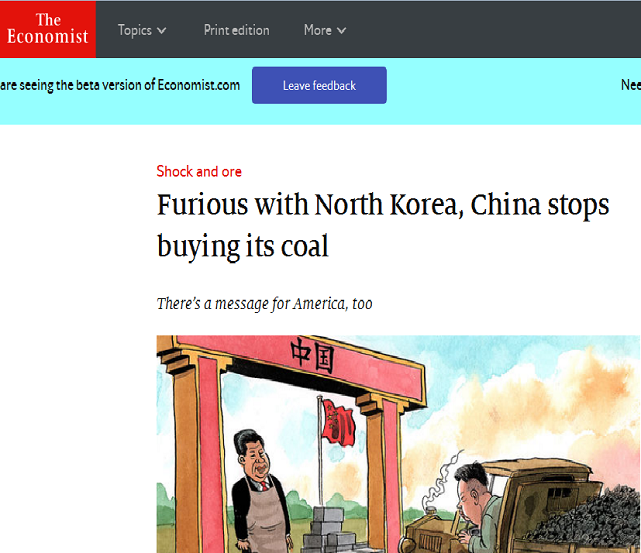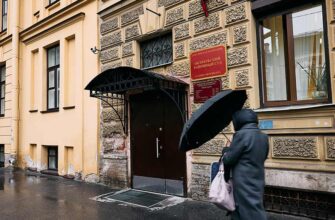According to British magazine “the Economist”, as a result of two dramatic conflict episodes of the past two weeks, China stopped buying coal in North Korea. The media sees there, together with more relaxed attitude to criticism of the N. Korea, signs of China’s cooling towards its neighbor.
The first episode held on 12 February 2017 is ballistic missile tests of the DPRK, which was reacted negatively by the new U.S. President D. Trump and the Prime Minister of Japan Shinzo Abe.
On the next day, 13 February 2017, at the airport of Kuala Lumpur (Malaysia), a citizen of the DPRK applied to medical help because of the attack on him, later he died. The first Prime Minister of Malaysia in a statement on 16 February 2017 said that the person is a half-brother of the head of the DPRK Kim Jong-UN, but North Korean Ambassador to Malaysia denied it. “The Economist” writes about a possible conspiracy with participation of the Ambassador of the DPRK, later “escaped” to Pyongyang. It is assumed that the victim, who lived in China under the guise of the latter, was known for N. Korea “opening” views and was a rival of Kim Jong-un.
On 18 February 2017 China announced the suspension of supply of coal from 19 Feb till 31 Dec 2017. The economy of North Korea depends on these supplies. But on 21 February the Minister of foreign Affairs explained that the suspension happened due to the fact that all of the planned purchase volume of coal was already sold out. Although the North Korean observers doubt that China could import its annual quota of 7.5 million tonnes for six weeks, experts say that in 2016 China has tripled over the coal procurement and formally met obligations under the United Nations (in March last year, the country had joined the sanctions against the DPRK into withdrawing the last of its nuclear program).
Sources: Zhenmin Zhiba, The Economist, Reuters



